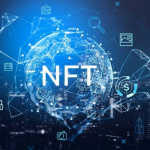Introduction
In recent years, the concept of the metaverse has captured the imagination of technology enthusiasts, futurists, and even popular culture. Coined by science fiction writer Neal Stephenson in his 1992 novel “Snow Crash,” the metaverse refers to a virtual reality-based universe that transcends our physical reality.
Today, the metaverse is increasingly becoming a tangible reality, promising vast opportunities and transforming the way we live, work, and interact. In this article, we delve into the essence of the metaverse, its potential applications, and the implications it holds for society.
But now that it’s here in the form of the Meta verse, people are baffled by the concept and how it will impact the future of humanity. Millions of people every day are asking questions about this world, such as What is the Metaverse? How do you access the Metaverse world? Who is building it? What makes Metaverse so important? What are the usage of Metaverse?
And if you’re among those people, keep reading as we answer some of these burning questions and explain how the Metaverse will impact the future.
What is the Metaverse?
Metaverse is a blockchain-based virtual reality platform that allows for the creation and sharing of virtual assets. From Ready Player One to The Matrix, virtual worlds where the only limit is your imagination have been the subject for many dystopian science fiction books and movies for decades.
The meta verse can be best described as a digital realm consisting of interconnected virtual worlds, where users can engage with one another and digital entities in real-time. It goes beyond conventional virtual reality experiences by offering persistent and immersive environments that are not bound by the limitations of physical reality.
This digital universe is built upon advanced technologies such as augmented reality (AR), virtual reality (VR), artificial intelligence (AI), blockchain, and the Internet of Things (IoT), among others. Metaverse doesn’t refer to a specific technology, but it is the amalgamation of different technologies working together to create a network of interconnected virtual spaces similar to the Internet.
For most technology experts, Metaverse is the next phase in the evolution of the Internet. You can think of it as a more interactive Internet, powered by augmented reality (AR) and virtual reality (VR) technologies, among others, to create a virtual world. This popular school of thought imagines the Meta verse as a place. It is a place to work, play, interact and own belongings across different digital locations like Roblox, Fortnite, Sandbox, Decentraland and so on.
Also read: Top Trending Technologies You Should Learn In 2023
Who will build the Metaverse?
You might think that Mark Zuckerberg is the one building the Metaverse, since he changed Facebook’s name to Meta. But that’s not true. Facebook founder Zuckerberg is simply betting the most on it. In fact, Metaverse will be built more or less like the Internet was built. With a number of people and companies contributing different bits and pieces to it, slowly, over time.
The development of the metaverse is a collaborative effort involving various stakeholders from the technology, gaming, entertainment, and business sectors. While no single entity or organization can solely build the entire metaverse, several key players are actively contributing to its development. These include:
Technology Companies
Technology giants such as Facebook (Meta Platforms Inc.), Microsoft, Google, and Amazon are investing heavily in metaverse development. These companies possess the necessary resources, infrastructure, and expertise in areas like virtual reality, augmented reality, cloud computing, and artificial intelligence.
Game Developers
Many game developers and studios are playing a significant role in meta verse creation. Companies like Epic Games (creator of Fortnite) and Roblox have already developed expansive virtual worlds with social interaction and user-generated content, laying the foundation for metaverse-like experiences.
Startups and Innovators
Numerous startups and innovative companies are exploring metaverse concepts and technologies. These include companies working on virtual reality hardware, blockchain-based platforms for digital asset ownership, virtual marketplaces, and immersive content creation tools.
Open-Source Communities
Open-source communities and decentralized platforms also contribute to metaverse development. These communities foster collaboration, innovation, and the development of interoperable technologies that can connect different virtual worlds.
Content Creators and Users
The metaverse heavily relies on user-generated content and the active participation of individuals and communities. Content creators, including artists, designers, developers, and influencers, contribute to the metaverse’s growth by designing virtual objects, environments, and experiences.
Collaboration among these stakeholders, along with the involvement of policymakers, researchers, and other industry players, will shape the metaverse’s evolution. The metaverse will likely emerge through a combination of efforts, partnerships, and standards that enable seamless interaction and connectivity between different virtual experiences.
Also Read: Apple Vision Pro: A Game-Changer for Metaverse and Blockchain
How to access this Metaverse?
Accessing the metaverse involves a combination of hardware, software, and connectivity. While the metaverse is still in its early stages, here are some essential components and steps to access it:
Virtual Reality (VR) or Augmented Reality (AR) Hardware

To fully immerse yourself in the metaverse, you will need VR or AR hardware. VR headsets, such as Oculus Quest, HTC Vive, or Valve Index, offer a fully enclosed virtual reality experience. AR devices like Microsoft HoloLens or smartphone-based AR apps provide a blend of virtual and real-world overlays.
Internet Connectivity
A reliable internet connection is crucial for accessing the metaverse. High-speed internet ensures smooth interactions and seamless content streaming. Broadband or fiber-optic connections are recommended for optimal performance.
Metaverse Platform or Application:
Choose a metaverse platform or application to enter and explore the virtual universe. Popular examples include:
-
- VRChat: A social VR platform where users can interact, explore user-created worlds, and participate in various activities.
- Decentraland: A blockchain-based virtual world where users can own virtual land, create and monetize content, and interact with others.
- Roblox: A user-generated content platform with a wide range of games, social experiences, and virtual economies.
- Rec Room: A cross-platform VR social club where users can meet, play games, and create their own environments.
- Facebook Horizon (Meta): An upcoming metaverse platform by Meta Platforms Inc. (formerly Facebook) focused on social interactions and user-created experiences.
Account Creation and Avatar Customization:
Most metaverse platforms require users to create an account and customize their virtual avatar. Avatars act as digital representations of users, allowing them to navigate and interact within the metaverse.
Exploring and Interacting
Once inside the meta verse, you can explore virtual worlds, participate in social activities, play games, attend events, create content, and interact with other users. Each platform will have its own unique features, activities, and guidelines.
Updates and Upgrades
The metaverse is continuously evolving, with new features, content, and experiences being added regularly. Stay updated with software updates, platform upgrades, and new releases to make the most of your metaverse experience.
It’s important to note that the metaverse is still in development, and access may vary depending on the platform and the specific technologies involved. As the meta verse expands and becomes more interconnected, accessing it may become easier and more accessible through various devices and entry points.
Also Read: Breaking New Ground: Innovations in Virtual Reality Technology
Key Elements of the Metaverse:
Immersive Virtual Reality
Users can enter the metaverse through VR headsets, which create a simulated environment that replicates the physical world or introduces entirely new dimensions.
Social Interaction
The metaverse fosters social connectivity, enabling users to interact with one another through avatars, voice and video communication, and shared experiences, blurring the line between real and virtual relationships.
User-Created Content
The metaverse encourages user-generated content, allowing individuals to create, modify, and contribute to the virtual environment, ranging from virtual objects and spaces to entire digital economies.
Persistent Digital Worlds
Unlike conventional video games or virtual experiences, the metaverse offers persistent digital worlds that continue to evolve and exist even when users are offline, creating an ongoing, interconnected narrative.
Also Read: What Is Machine Learning, How It Works And How To Apply It
Metaverse Potential Applications:
The metaverse holds significant potential across various domains, including:
Entertainment and Gaming
Gaming has been at the forefront of metaverse development, with vast virtual worlds, immersive gameplay experiences, and robust economies. The metaverse can enhance storytelling, enable collaborative gameplay, and provide new avenues for monetization.
Education and Training
The metaverse can revolutionize education and training by offering interactive, immersive learning environments. It can facilitate global collaboration, personalized education experiences, and practical simulations across various fields.
Commerce and Business
The metaverse presents new possibilities for e-commerce, virtual marketplaces, and digital asset ownership. Brands can establish virtual storefronts, while users can trade virtual goods, services, and even virtual real estate.
Communication and Social Networking
The metaverse reimagines social networking by enabling users to connect, communicate, and share experiences in virtual spaces. It offers novel ways to collaborate, network, and build communities transcending geographical boundaries.
Also Read: Chatbots of Tomorrow: Exploring the AI Revolution
Societal Implications and Challenges:
As the metaverse evolves, it raises important considerations:
Privacy and Security
The metaverse collects vast amounts of personal data, necessitating robust privacy and security measures to safeguard user information.
Accessibility and Inclusivity
Ensuring the metaverse is accessible to all individuals, regardless of socioeconomic background or physical abilities, is crucial to avoid creating digital divides.
Ethical and Legal Frameworks
As the metaverse becomes an integral part of society, ethical guidelines and legal frameworks must be established to govern digital rights, virtual property, and user-generated content.
Digital Well-being
Balancing the immersive nature of the metaverse with healthy digital habits and addressing potential addiction or mental health concerns is vital.
Metaverse’s impact on the future
A trigger for innovation
30 years ago, nobody could have predicted the Internet of today. The digital revolution completely changed our lives and gave birth to a plethora of other technologies without which our modern economy will now fail to function.
Similarly, as Meta verse picks up steam, it’s going to trigger a boom in technological innovation. In one way or another, it already has. Video games are already getting more and more sophisticated with their graphics, 3D tech and low latency periods.
Right now, Meta is developing an AI supercomputer to power their Metaverse. Technology like this will ultimately benefit other industrial sectors as well. Other technologies that are pivotal to the metaverse are AR/VR technology, blockchain, Internet of Things, machine learning, 3D reconstruction, digital currency, sensors etc.
Metaverse fashion
With the rise of digital fashion, virtual showrooms, virtual shopping and try-on technologies, Metaverse is dramatically reshaping the fashion industry. From Ralph Lauren to Gucci, fashion brands have entered the Esports market by designing ‘Skins’ for video games.
Your digital avatar in the Meta verse is going to need digital clothes too, and leading digital fashion product creation are brands and marketplaces such as The Fabricant, DressX, REPUBLIQUE, XR Couture, Tribute, and RTFKT (which recently acquired by Nike). They are raking in millions of dollars by selling purely digital fashion for social media, video games and popular Metaverse platforms like Sandbox, Decentraland, Roblox, Zepetto, and Bloktopia.

The Metaverse has proved to be very convenient for fashion shows as well. It allows brands to showcase their collections with 360-degree views on 3D virtual models and cut back on the massive waste and CO2 emissions created by expensive fashion shows.
When you can showcase your collection in a Metaverse, why not sell it in Metaverse too! Brands are taking this opportunity to provide a more immersive and interactive shopping experience with virtual showrooms. Going as far as integrating AI so they can track customer activities and other data like purchase history, taste and demographic profiles. This will allow brands to increase their conversation rates by giving more personalized clothing recommendations to encourage purchases.
The future of entertainment
Celebrities like Ariana Grande, Marshmello, Travis Scott and Snoop Dogg are all among the list of pop stars to hold Metaverse concerts in the video game Fortnite. Tens of millions of video gamers watched Ariana Grande fly through a starry night sky with huge angel wings while surrounded by players inside bubbles.
Seeing the potential, entertainment company Warner Music Group (WMG) has partnered with The Sandbox to build a music-focused Metaverse theme park. Other entertainment companies like HYBE (BTS’s label) and YG (Blackpink’s label) are buying Metaverse platforms and introducing Extended Reality (XR) features to their online concerts.
Meanwhile, Disney is building a whole new world in the Meta verse (no points for guessing it’s a theme park). Concerts and theme parks are not the only entertainment Meta verse will offer in the future. The same technology can allow you to virtually visit virtual museums, hang out in digital spaces in Decentraland, go mini-golfing, and do so much more with other people, without ever leaving your couch!
Work from Metaverse
By now, it is clear that video calls don’t exactly provide the right structure for effective collaboration. The Meta verse promises to provide immersive team collaborations and accelerated learning through virtualization. The Metaverse could be the key to boosting collaboration, productivity and reducing isolation as more and more employees work remotely.
Meta Platforms has plans to develop digital office spaces, where colleagues can meet as custom-made avatars to collaborate and hold meetings. Similarly, India-based company NextMeet is also building avatar-based interactive working, learning solutions and virtual workplaces.
From the looks of things, it’s possible that soon work meetings could partially, if not completely, shift to the Metaverse in the next two to three years. Even Bill Gates has predicted this.
In addition to all this, the Meta verse can also be used to provide ‘hands-on training’ virtually. Companies like KPMG, Accenture and MGM are all actively investing in Metaverse as a client support and employee training tool.

A sustainable alternative
The most obvious sustainable impact of the Meta verse is that it will reduce the amount of travel people will need to do for fun or business activities. This could potentially reduce a lot of environmental pollution.
Another benefit is the possibility of substituting trendy fast fashion (one of the most wasteful industries) with digital fashion, which takes 90% less CO2 to produce. Keeping up with the endless cycle of fashion trends through the Metaverse and only physically buying long-lasting items, might solve our fashion overproduction problem.
However, there is also concern that Meta verse will increase greenhouse gas emissions since it uses Cloud, VR and AI technologies that require large amounts of energy. With Metaverse still in its infancy, it is hard to say if it will become more energy efficient before its energy consumption becomes a problem.
Conclusion
The metaverse is transforming the way we understand and engage with digital realities, representing a significant shift in our approach to this realm. It offers boundless opportunities for entertainment, education, commerce, and social connection.
As this digital frontier expands, it is essential to navigate its challenges while upholding ethical standards, privacy, inclusivity, and digital well-being. The meta verse holds the potential to reshape our lives, bridging the gap between the physical and digital worlds and propelling us into a new era of human experience.
As you can see, the Metaverse is as much a sociological shift as a technological one. It’s going to raise new questions about privacy, access inequality, health concerns, intellectual property rights, protection of children and millions of other legal issues. And it’s important that we address each of these questions with as much thought as we can. It is also important to DO IT NOW, before we turn Meta verse into the dystopian concept that originally inspired it.
Shivani Sehta is a marketing enthusiast and content writer at World Fashion Exchange. WFX is new generation fashion ERP software and Fashion PLM Software and PLM software company. She specializes in writing content about the latest technology trends. In her free time, she likes to dance and spend time with nature





